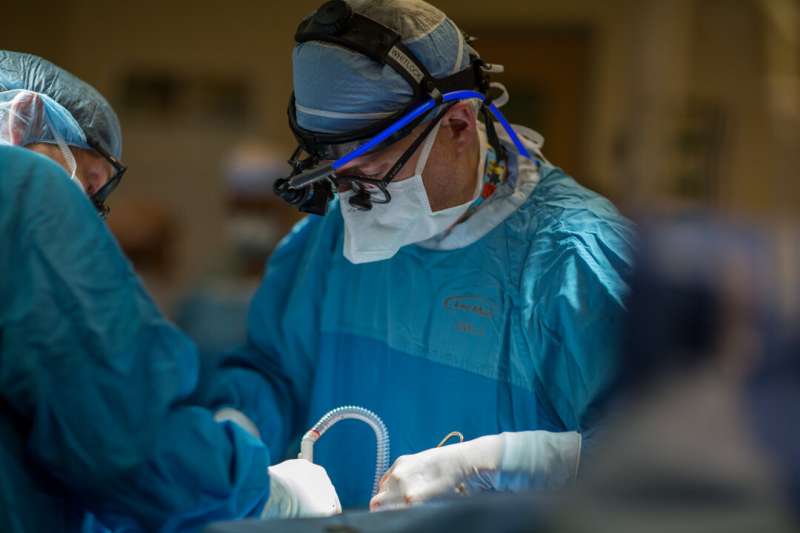Better assessment of risk from heart surgery results in better patient outcomes

A large international study has found an important new benchmark for measuring the risk of death for patients undergoing heart surgery, of which there are two million adults a year globally.
Levels of troponin (a type of protein found in heart muscle) have been used for years, through a blood test, to measure the risk of death and serious complications in patients presenting with symptoms of a heart attack. However, this test is not commonly measured after heart surgery.
With limited data on patients undergoing coronary artery bypass grafting or open-heart surgery such as valve repairs and replacements, recommendations by medical experts varied widely (from 10 times to 70 times or more the laboratory normal value) regarding troponin levels that define heart attack and important heart injury after heart surgery.
This study, published in the New England Journal of Medicine today, assessed patients having heart surgery, measured troponin before and daily for the first few days after surgery, and assessed death and the incidence of major vascular complications—such as heart attack, stroke or life-threatening blood clot—after heart surgery.
"We found that the levels of troponin associated with an increased risk of death within 30 days were substantially higher—200 to 500 times the normal value– than troponin levels that surgical teams are currently told defines the risk of a patient having one of the most common complications after heart surgery—myocardial injury, a heart muscle injury associated with increased deaths," said the study's lead investigator, P.J. Devereaux.
He is a senior scientist at the Population Health Research Institute of McMaster University and Hamilton Health Sciences (HHS), a professor of medicine and health research methodology at McMaster University, and a cardiologist at HHS.
The study found that by 30 days after heart surgery, 2.1% of patients had died, and 2.9% had experience a major vascular complication, such as heart attack, stroke, or life-threatening blot clot.
The study involved 15,984 adult patients with an average age just over 63 years undergoing cardiac surgery. Patients were from 12 countries, with more than a third of the countries being outside of North America and Europe.
"This study is a landmark for the health teams taking care of patients after cardiac surgery. For the first time, we have a marker that is fast and reliable for the monitoring of these patients after cardiac surgery," said André Lamy, a study investigator, PHRI scientist, professor in McMaster's department of surgery, and heart surgeon at HHS.
"Our findings will help further studies look at the timing of treatments and procedures to improve patient outcomes after heart surgery," said investigator Richard Whitlock, PHRI scientist and associate chair, research, professor of McMaster's department of surgery, and heart surgeon and intensive care doctor at HHS.
More information: High-Sensitivity Troponin I after Cardiac Surgery and 30-Day Mortality, New England Journal of Medicine (2022). DOI: 10.1056/NEJMoa2000803

















